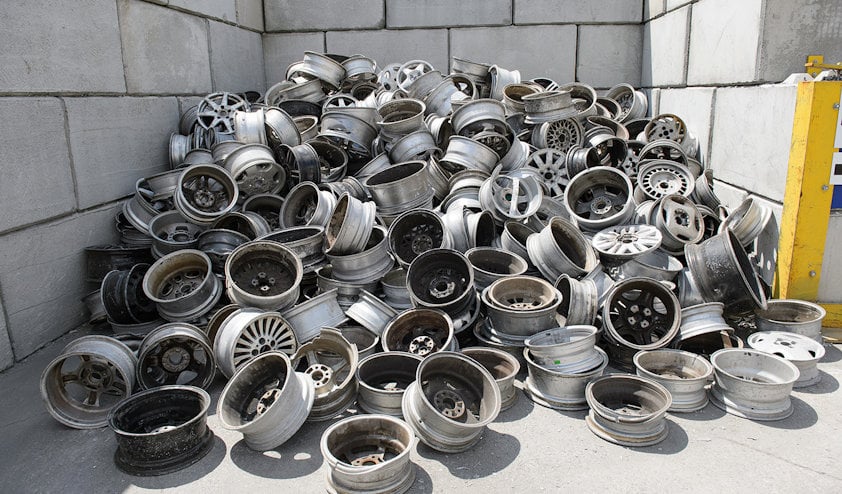Unlocking Europe's Resource Potential: Improving rules on recycled aluminum is key to maximizing circularity in Europe
A truly circular economy is a fundamental step for Europe to achieve strategic autonomy. Through urban mining, we can better collect and recycle secondary raw materials to improve the sustainability of our industrial value chains and decrease Europe’s dependencies on imported raw materials.

At Hydro, we see the current regulatory developments in Europe as a necessary step for protecting our common environment and strengthening the resilience of the European economy.
Aluminium is endlessly recyclable and retains its material properties in the remelting process. It is therefore ideally suited for the circular transition and the uptake of recycled aluminium should be encouraged.
Clear distinction between scrap types is needed to accelerate emission cuts
To be effective, policy should draw a clear distinction between post-consumer scrap, which refers to products that have reached the end of their use phase (such as an old car, a window frame or a phone), and pre-consumer scrap, which is scrap stemming from inefficiencies in the aluminium production process and has never been in use.
While the uptake of post-consumer scrap contributes to closing material loops and significantly reducing the carbon footprint of new products, the uptake of pre-consumer scrap does not.

A real opportunity for policy makers through legislations and directives in 2023
This distinction will be particularly important in 2023, which is shaping up to become a year of circularity, with several key policy files on the EU agenda.
Policymakers have a real chance to give secondary raw materials and post-consumer scrap the attention they deserve through the Ecodesign for Sustainable Products Regulation, legislation on Substantiating Environmental Claims, the Critical Raw Materials Act and the ongoing revision of the End-of-Life Vehicles Directive.
All these pieces of legislation must make clear distinctions between post- and pre-consumer scrap, and contribute to closing material loops.

What should count as “recycling?”
Definitions are important because "recycled material" will usually be perceived as post-consumer scrap by consumers, but it may also refer to pre-consumer scrap. In fact, what matters for truly sustainable recycling is to improve the recycling efficiency of end products containing aluminium, as this would allow more post-consumer scrap volumes to be available on the market. This can be achieved by improving collection systems, and investing in innovative sorting and recycling technologies, which the Ecodesign proposal will hopefully contribute to creating more of.
The draft Ecodesign Sustainable Products Regulation is a centerpiece of the EU Circular Economy Action Plan. It will lay down rules on design requirements, energy performances, carbon footprints, material contents, traceability, and circularity of products put on the European market, with the aim of making products more durable and circular.
Digital passports create the transparency needed for consumers
Hydro welcomes policies that will boost the uptake of secondary raw materials used in products. Information on products' footprints throughout their entire life cycles should be conveyed to consumers to enable them to make the most sustainable choices, including on the contents of post- and pre-consumer scrap contained within products.
The Digital Product Passport (DPP) requirements planned under the Ecodesign regulation show great promise in doing just this.
In fact, Hydro has already pioneered work on a DPP through a pilot project, in which furniture made with Hydro's CIRCAL75R brand was branded with a QR code allowing users and passers-by to access information on the material and sustainability properties of the furniture. In such a passport, data should be targeted to specific groups to make the information as relevant and easy to understand as possible. At Hydro, we believe that ensuring product transparency is key to helping consumers choose the most sustainable products and become drivers of circularity.
The upcoming directive on substantiating green claims will require producers to back up their green claims using scientifically sound methods to tackle misleading or false sustainability claims. Producers will also have to identify environmental impacts and trade-offs to ensure that, for instance, a reduction in CO2 emissions does not come at the expense of other forms of pollution. Transparency is therefore key for the Green Claims legislation, which, together with the DPP, will give consumers certainty that products labeled as sustainable are actually sustainable.

Maximizing the opportunities of circularity in raw materials is key for the European Green Deal
The European Commission's proposal for a Critical Raw Materials (CRM) Act has been eagerly awaited, as it represents a crucial step towards achieving strategic autonomy. The importance of self-sufficiency and diversified supplies of CRMs cannot be overstated. However, the focus of the debate should now shift beyond simply establishing new mining and processing projects. Instead, we must concentrate more on recycling critical and strategic raw materials that have already been produced and used.
The proposed legislation sets targets for recycling capacities in Europe and facilitates both permitting and access to funding. This makes a significant contribution to the uptake of secondary raw materials and the closing of material loops for critical and strategic materials. By prioritizing recycling, the EU can meet a more significant portion of its future demand for aluminium and other CRMs through secondary raw materials. However, particular focus must be on post-consumer recycling to ensure a genuinely circular economy.
To achieve these goals, it is essential to keep as many products as possible within EU borders when they reach their end-of-life. The revision of the End-of-Life Vehicle Directive is critical to achieving this, and the Commission is expected to propose it this year. The revised directive aims to tackle the tracing of vehicles at their end-of-life. Reporting obligations must differentiate between pre-consumer and post-consumer scrap when reporting on recycled content.
The EU's circular economy and CRM supply chains can benefit significantly from these legislative changes, making them potential game changers in the European product market. They can create robust incentives for public and private consumers to choose sustainable products. By swiftly adopting these files, Europe can overcome the barriers that hinder an effective secondary raw materials market and build a true European Circular Economy, benefiting both the European Green Deal and the EU's strategic autonomy in the long run.
